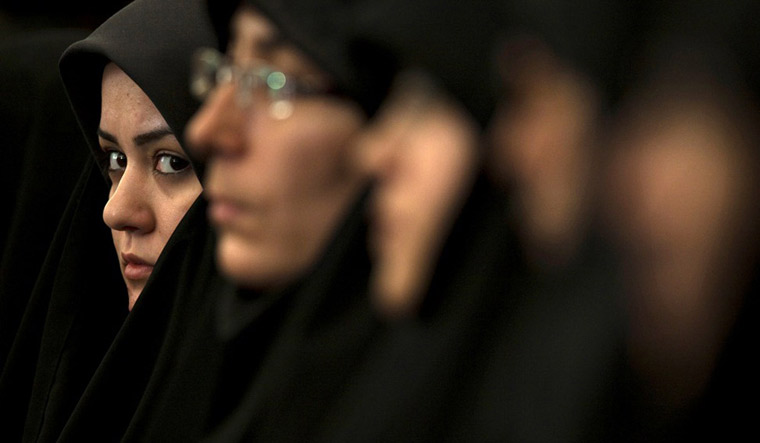The Supreme Court on Friday agreed to examine the validity of a newly enacted law which makes the practice of instant divorce through triple talaq among Muslims a punishable offence entailing imprisonment of up to three years.
A bench of justices N.V. Ramana and Ajay Rastogi issued notice to the Centre on a batch of petitions which has sought to declare The Muslim Women (Protection of Rights on Marriage) Act 2019 as "unconstitutional" on grounds that it allegedly violates the provisions of the Constitution. "We will examine this," the bench told senior advocate Salman Khurshid, who was appearing for one of the petitioners.
Khurshid told the bench that there were many dimensions, including making the practice a punishable offence and jail term of up to three years, which were required to be examined by the top court.
Khurshid told the bench that the petitioners were concerned about making the practice of triple talaq among Muslims an offence as the apex court had already declared it to be null and void.
"If there is no such thing as triple talaq then what are they making an offence," he told the bench and referred to a five-judge constitution bench verdict which had declared the practice of triple talaq among Muslims as null and void.
To this the bench asked, suppose if a religious practice is declared as null and void and it is declared as an offence like dowry and child marriages but if it still goes on then what is the remedy.
also read
- Supreme Court defers hearing on West Bengal service recruitment scam, OBC reservation
- Asaram Bapu rape case: SC grants self-styled godman three-month bail on medical grounds
- 'Heard it at Delhi HC': CJI Khanna recuses himself from hearing pleas related to IOA, AIFF constitutions
- SC asks UGC details of action taken on caste discrimination, set up of equal opportunity cells in higher institutions
Responding to the query, Khurshid said several aspects have to be examined and in the triple talaq matter the constitution bench had already said the practice is void.
He said it has to be examined whether the religious practice denies the rights to the woman.
The bench, while agreeing to examine the validity of the 2019 Act, observed that petitioners have also raised the issue of punishment of up to three years and grant of bail to the husband only after the woman is heard by the court.
A total of four petitions have been filed in apex court challenging the validity of the law.



